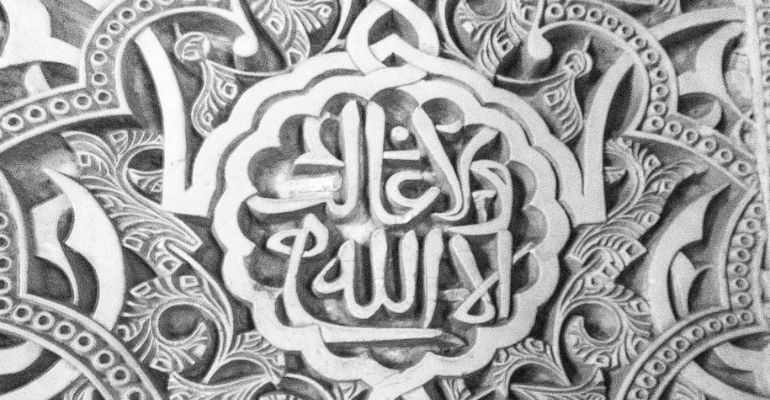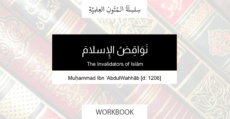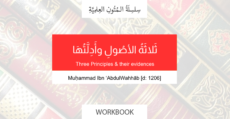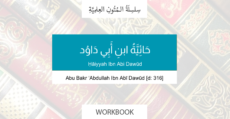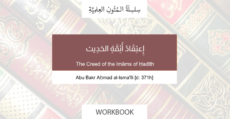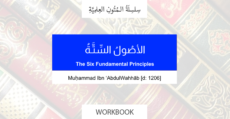Reference: Jahalāt khatīrah fī qadayah i’tiqādiyyah kathīrah p. 36
In the name of Allāh, ar-Raḥmān (the most merciful), ar-Raḥīm (the bestower of mercy).
1st Principle: The names and attributes of Allāh are “tawqīfiyyah” – there is no path in [affirming or negating them] except according to the Book and Sunnah. Therefore, what has been expanded upon, by some of the latter Muslims in terms of affirming or negating the names and attributes of Allah, without clear textual Islamic proofs, is rejected.
2nd Principle: The obligation is to affirm what Allāh, the exalted and majestic, affirmed for himself, or his Messenger ﷺ affirmed for him, from his names and attributes; this has to be affirmed accurately in a manner befitting his majesty and greatness – blessed is he and most high. This must be done without differentiating between his names and attributes, or differentiating between one attribute and the other – all of them are attributed to Allāh in a manner which befits him, blessed is he and most high.
3rd Principle: Negating any resemblance or comparison between the Creator and creation, regardless of the status that the created being has with Allāh. This is because Allāh said,
{There is nothing like unto him, and he is as-Samī’ (all-hearing), al-Baṣīr (all-seeing)} [42:11]
4th Principle: Excessively delving into, and overcomplicating matters by hypothesising about the names and attributes of Allāh, is not the methodology of the Ṣalāh (pious predecessors) of the Ummah of Muḥammad ﷺ, whom he testified to their goodness.
5th Principle: Not deviating regarding the names and attributes of Allāh. This is due to his saying:
{And to Allāh belong the beautiful names, so invoke him by them. And leave those who deviate concerning his names. They will be recompensed for what they have been doing} [07:180]
العنوان : خمس قواعد يدور عليها الإيمان بأسماء الله وصفاته
المرجع : جهالات خطيرة في قضايا اعتقادية كثيرة ص٣٦
أولاً: أسماء الله وصفاته توقيفية، لا سبيل إليها إلا عن طريق الكتاب والسنة، وما توسع به من توسع من المتأخرين في أسماء الله وصفاته من النفي والإثبات مما ليس عليه دليل شرعي منصوص، فهو مردود.
ثانياً: وعليه فالواجب إثبات ما أثبته الله عز وجل لنفسه، وما أخبر عنه رسوله ﷺ من أسماء وصفات إثباتاً حقيقياً يليق بجلاله وعظمته تبارك وتعالى، من غير تنزيه بين أسماء وصفات، أو بين صفات وصفات أخرى؛ إذ الجميع يوصف به الله بما يليق به تبارك وتعالى.
ثالثاً: في المشابهة والمماثلة بين الخالق والمخلوق، مهما كانت منزلة المخلوق عند الله رب العالمين لقوله:
{لَيْسَ كَمِثْلِهِ شَيْءٌ وَهُوَ السَّمِيعُ الْبَصِيرُ} 11 الشورى
رابعاً: إن كثرة الخوض والتعمق في البحث والافتراضات في الأسماء والصفات ليس من منهج سلف أمة محمد ﷺ الذي شهد لهم الرسول ﷺ بالخيرية.
خامساً: عدم الإلحاد في أسماء الله وصفاته؛ لقوله:
{وَلِلَّهِ الْأَسْمَاءُ الْحُسْنَى فَادْعُوهُ بِهَا وَذَرُوا الَّذِينَ يُلْحِدُونَ فِي أَسْمَائِهِ سَيُجْزَوْنَ مَا كَانُوا يَعْمَلُونَ} [الأعراف: 180].

